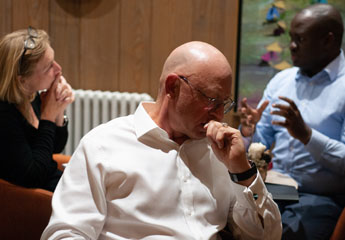
Doing Good is good business
How often do you hear these words?
I had an interesting meeting with the sustainability team at Pick n Pay in Rondebosch, Cape Town. I listened intently to what they were doing across a broad range of fronts; from making the company compliant with the UN Sustainable Development Goals (UNSDGs), to applying sustainability principles, bringing young entrepreneurs and small suppliers into their huge value chains. And integrating it all together under the new brand, People n Planet. Like Coles, or Woolworths, or Tesco in the UK, Pick n Pay is a household home name to millions; and they do amazing work, assisting the communities they support. Pick n Pay employs 52,000 across many African countries.
The business conditions are tough. In South Africa the unemployment rate has recently hit 27%, an all-time high, with youth most at risk. The same corrupt political party has, unbelievably, been returned to power. Mind you, after seeing our own Australian elections, nothing surprises me. So, President Ramaphosa, the country has high hope for you, after Zumagate and his gangster state.
Raymond Ackerman, the PnP founder, has a philosophy of ‘Doing Good is good business’. It is a family run business and I have known their current chairman, Gareth Ackerman since 1995. Gareth is as passionate about ‘Doing good is good business’. He suggested I have the meeting with their Sustainability team.
At that meeting, I discussed the work of the Global Ecovillage Network (GEN) and many of its recent initiatives, stressing that the GEN culture is actually opposed to mass consumerism and market capitalism. So what are we doing NOW collaborating with business? Simple, we have no other option to make changes quickly, other than collaborative effort. And the maxim of doing good, is good business,. comes into play here. Many forward thinking businesses are actively concerned about aligning with the SDGs to assure their futures.

I spoke about ecotourism and that at the UN conference in PNG in June where as part of a panel on sustainable tourism, I would talk about how we want to develop a value chain that is not build around the top brands. In fact the opposite. GEN Oceania and Asia (GENOA) is putting together a unique value proposition; an ecotourism project, that so far spans nine countries in Asia and Oceania.
GENOA is united in its desire to give people a beautiful, unforgettable and defining life experience. We want to expose them to a different way of living, loving and learning. GEN has a beautiful culture that values individuals, the group and the community. It offers deeply memorable ceremonies and experiences, just waiting to be shared and learnt. It values life experiences over material possession, and understanding of the journeys we all are required to make.
We want to take our guests into these exciting communities. Off the normal tourist path, the big name brands and the tight ecosystems that support them. Like Pick n Pay, we want to develop alternative value chains. Value chains or networks all working towards a resilient and exciting future. Those who have joined our learning experiences, report it as being transformative.
Our social business model in turn help communities upgrade their own villages (meeting spaces, infrastructure, kitchens, accommodation, gardens), stimulate economic activity (local goods, education, tourism, cultural celebrations) and bring resources to regenerate. (environmental regeneration, food, energy, water security, social networking and cohesion).
But the ecotourism forms part of our larger Ecovillage Transition Programme. This programme transitions traditional villages towards a sustainable future. Most of the world still lives in small villages and communities. We have signed a JV with Tower Insurance in New Zealand to work with communities in Fiji . Doing good is good for business.
With climate change, population growth and diminishing global capacity, sustainability is no longer a nice to have. And that is why forward thinkers, like the insurance industry and some retailers understand the risks in the future. And take action.
GEN is present in South Africa, I explained. With so many living in poverty and so many drawn to the city looking for work and a better life, the call to action is HUGE. I was gratified by the Pick N Pay team seeing the benefits of stepping into the future together on a different path. But as much as business needs to respond, GEN who has so much to offer, also needs to organise for a bigger future. It needs business and business needs it.
Some of the documented and positive outcomes of the Ecovillage Transition Programme is;
- Eradication of poverty
- Increased well-being
- Food, water, energy security
- Restoration of ecosystems
- Strengthen social cohesion, systems of governance and management of conflict
- Building accountable institutions
- Gender equality
- Improved education
- Strengthen local economies and create employment
- Cross sharing of principals and ideas to enrich both GEN and local communities
- Sustainable living practices
- Mitigation and preparation for impacts of climate change
- Awareness of and active supporters of the UN SDGs, their importance and relevance and how these impact and are supported by the communities
Doing good is good business.
Gareth Ackerman

